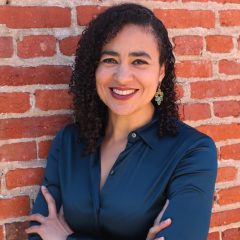Even as DC’s economy grows, it is marked by stark racial inequalities in income, wealth, and poverty. Affording the basics, such as rent, food, and utilities is a daily challenge for many DC residents. This is disproportionately true for Black residents, one in five of whom live in poverty. Income support programs help people make ends meet and boost long-term education and health outcomes for children. By helping residents pay their bills, care for their children and possibly save for a rainy day, DC can help create more stability and a future of shared abundance.
Featured Publications & Resources
Report
New Census Data Reveal Growing Income Gaps in the District
By Jenny Reed • September 22, 2009 • Income & Poverty
Testimony
Testimony of Katie Kerstetter, Policy Analyst, DC Fiscal Policy Institute, At the Public Hearing on the FY 2009 and FY 2010 Budget Gap-Closing Strategies, District of Columbia Committee of the Whole
By Jenny Reed • July 24, 2009 • Income & Poverty / Revenue & Budget / TANF & Income Support
Report
Mayor Fenty’s TANF Proposal Will Increase Hardship Among Poor Families With Children And Will Not Help Families Move from Welfare to Work
By DC Fiscal Policy Institute • July 23, 2009 • Income & Poverty / TANF & Income Support
Latest on this Issue
Blog
DC Contends with Extreme Child Poverty Disparities by Race, Place, and Age
By Connor Zielinski • March 10, 2025 • Income & Poverty
Blog
Poverty Reduction Stalled While Racial and Income Inequality Persisted in 2023
By Tazra Mitchell • September 16, 2024 • Income & Poverty
Fact Sheets
DC Can Boost Income to Tackle Child Poverty
By DC Fiscal Policy Institute • May 23, 2024 • Income & Poverty / TANF & Income Support






